Church Chairman Reveals How Church Funds Are Managed
In this episode, a church chairman with 7 years of experience gives a detailed breakdown of his church’s expenses.
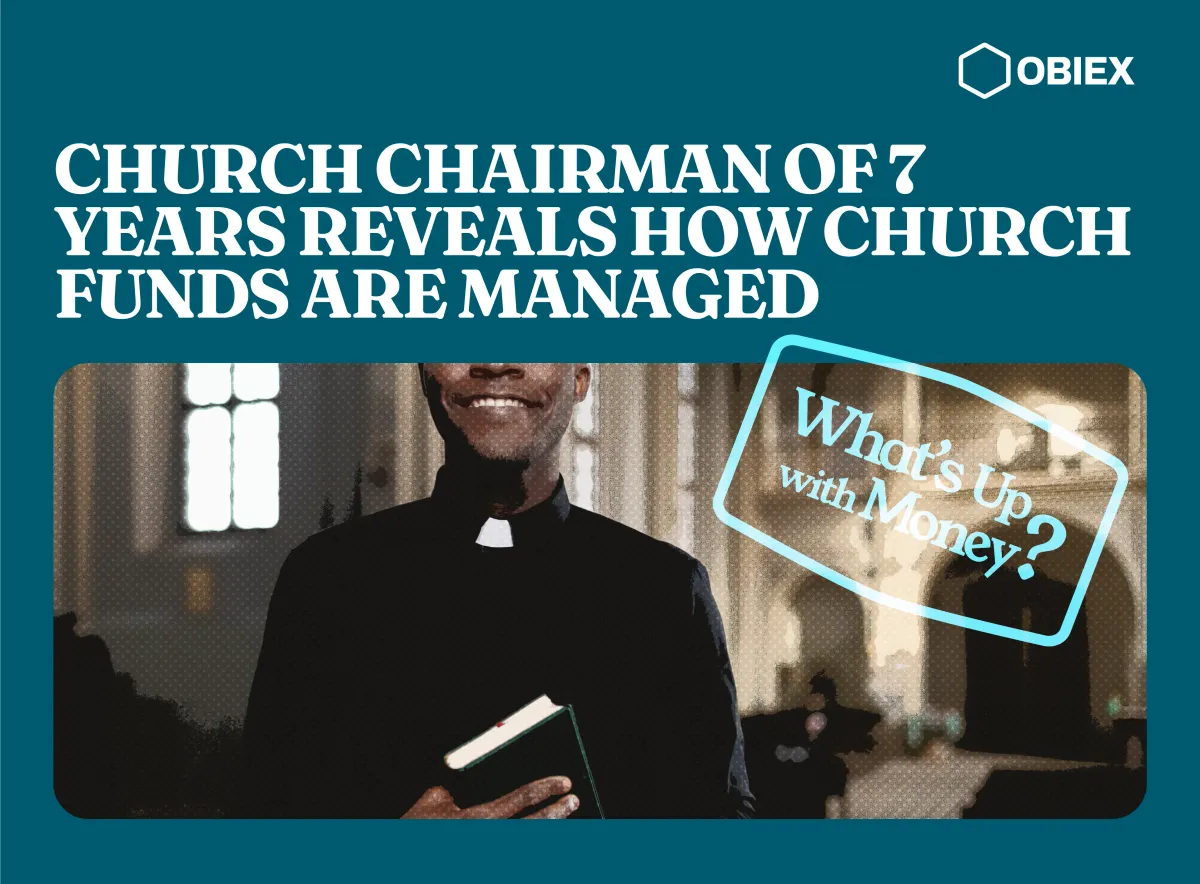
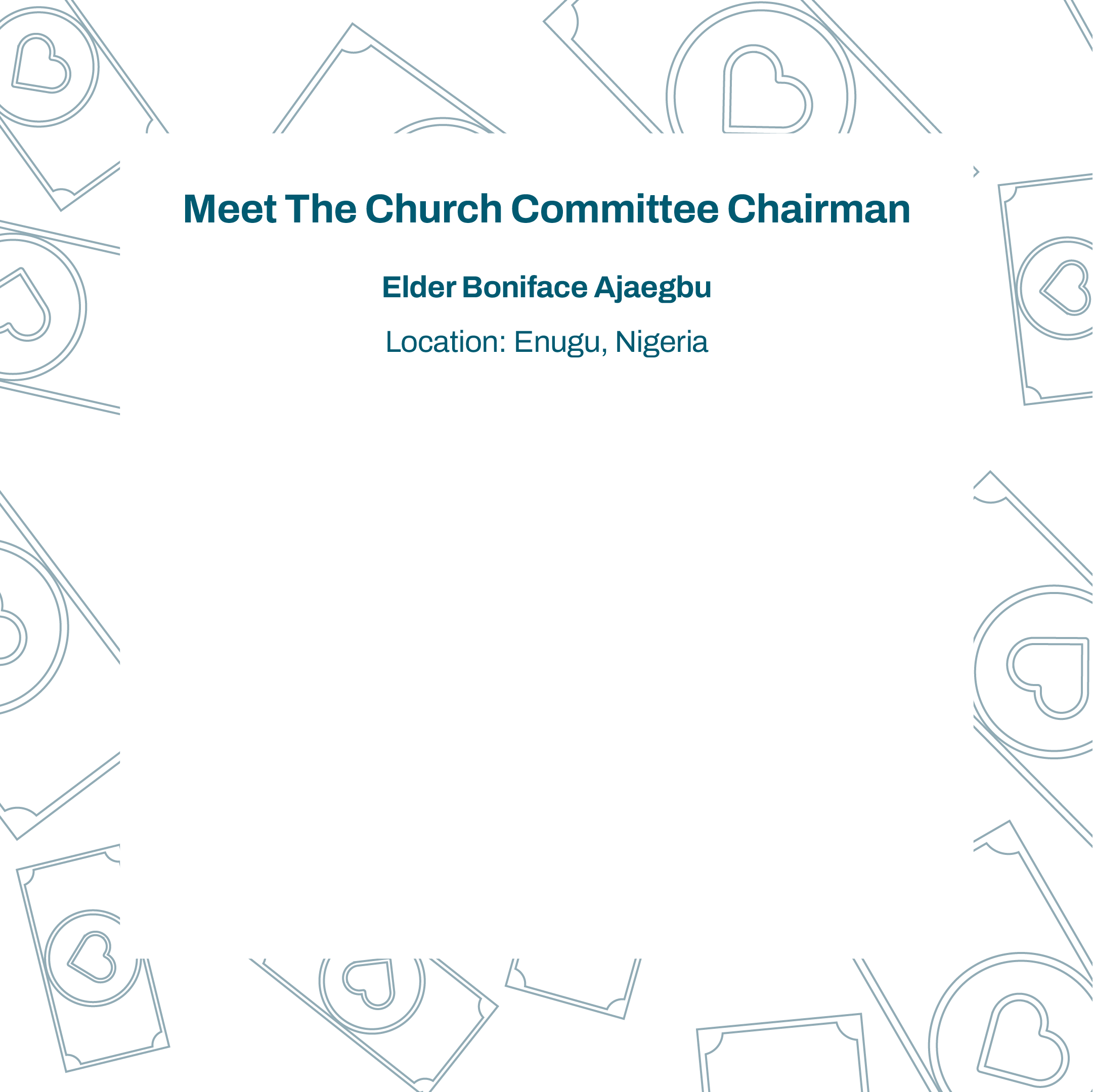
How are church funds managed? What are churches funding and spending on that they require so many offerings?
In this episode, a church chairman with 7 years of experience gives a detailed breakdown of his church’s expenses.
Are you as curious as we are? Let’s find out what’s up with this church’s money!
Can you start by telling us a bit about your role as the church chairman and how long you’ve been involved with the church?
I have been the chairman of the church committee of the United Evangelical Church, Enugu Township Headquarters, for 7 years. The church congregation voted me in and re-elected me for a second tenure, that’s why I have been serving in church management for this long.
So, what’s up with church money?
How much does your church typically receive in a month, and what are the primary sources of these funds?
The church receives an approximate income of between ₦400k to ₦700k monthly, and the sources of these funds are offerings made by members, payment of tithes, and sowing of seeds. We sometimes organise fundraising for various issues, while, at other times, some members assist the church based on self-determination and voluntary decisions when they see that it has a need.
There are times when the church has a financial need and pleads with its members to make personal contributions to the project. For example, the church may have a project that would cost ₦1 million and appeal to the church, emphasising that they do not have enough for it and calling for personal donations. Members of the church then contribute towards such a project.
And how does your church manage its finances?
We have the finance department of the church, which receives and records all the income. The church's treasurer keeps a small part, while the large amount is taken to the bank.
The church committee makes decisions on management. So whenever money is to be spent on behalf of the church, the church committee will meet and decide, depending on the value of the expenditure. These could be emergency requirements or minor expenses that the chairman and the pastor can just handle or a bulk expenditure whose approval goes to the church committee.
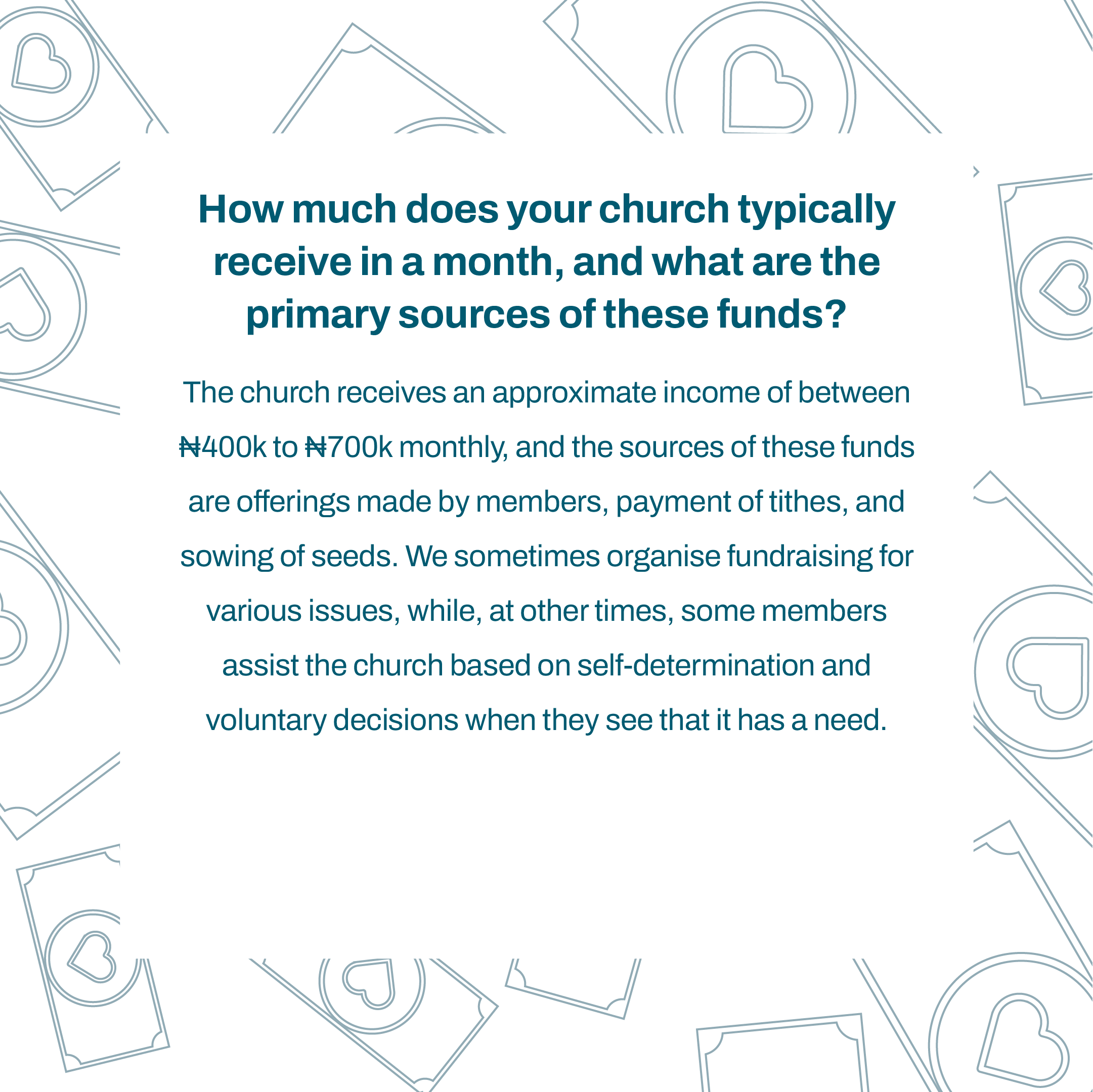
Can you break down some of these expenses?
Firstly, the church pays workers salaries, including the pastors and other workers. The church also uses the funds to handle developmental activities, like building the church house, and purchasing other things required for the church to move forward, like generators and vehicles.
The church also goes outside the context to help other churches. Sometimes, the church uses her funds to help sister churches, motherless babies’ homes, and more. There are also times when the church pays school fees for some students, handles cases of sickness of pastors, and assists some church members in settling financial matters, including helping the sick and the needy.
What percentage of the church's budget goes towards operational costs, such as the utilities and staff salaries you mentioned, versus community outreach or mission projects?
Between 60% to 90% of the income goes towards operational expenses. What the church saves after this is a little reserve in case of emergencies.
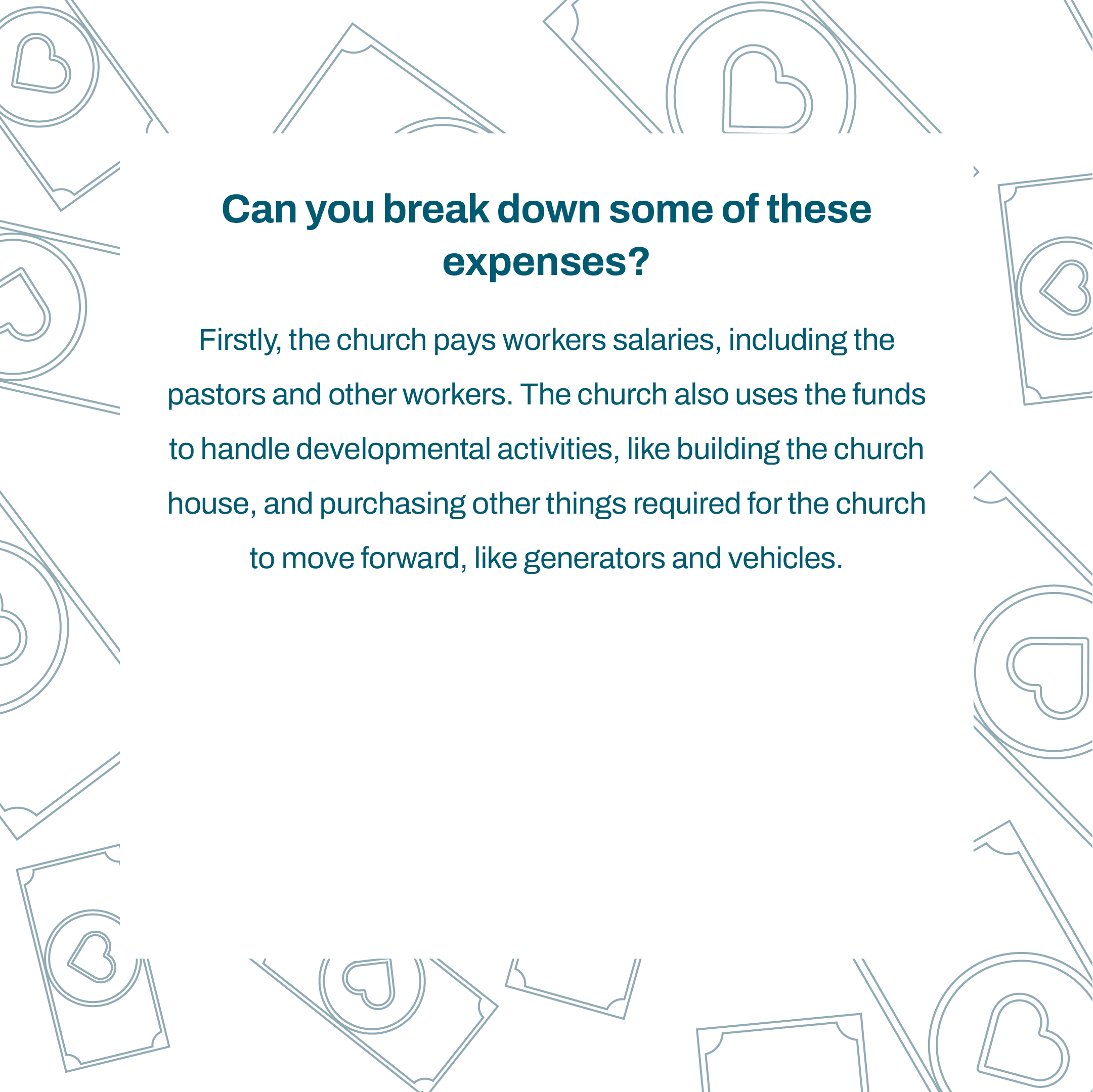
How does the church handle unexpected expenses or financial shortfalls?
For unexpected expenses, the church checks her purse to determine if it can handle the expenditure. If it can, it will go ahead and do it. Since our church does not currently have investments that yield returns to depend on, we call for assistance from the church if we experience financial shortfalls. Sometimes, the church pleads with members for financial support. The church can make this request during a Sunday service, calling for voluntary contributions.
How does the church ensure transparency and accountability in its financial management?
The church keeps financial records. We have an income voucher and an expenditure voucher. We have receipt groups, registers, and general ledgers. So, every money that comes in has a record in the income voucher, and everyone concerned verifies that such income came in. These people concerned are the financial secretary, who prepares the records of the amount that came in; the treasurer, who confirms what is received; and the church committee chairman, who confirms their records. Then, they all sign.
During the expenditure, the church committee approves the amount that should be spent. The financial secretary then prepares the expenditure voucher, and the chairman appends his signature, confirming that the expenditure has been approved. When the money goes out, we have supervisors who ensure it is used judiciously. Then, the balance of what the church has will also be on the records.
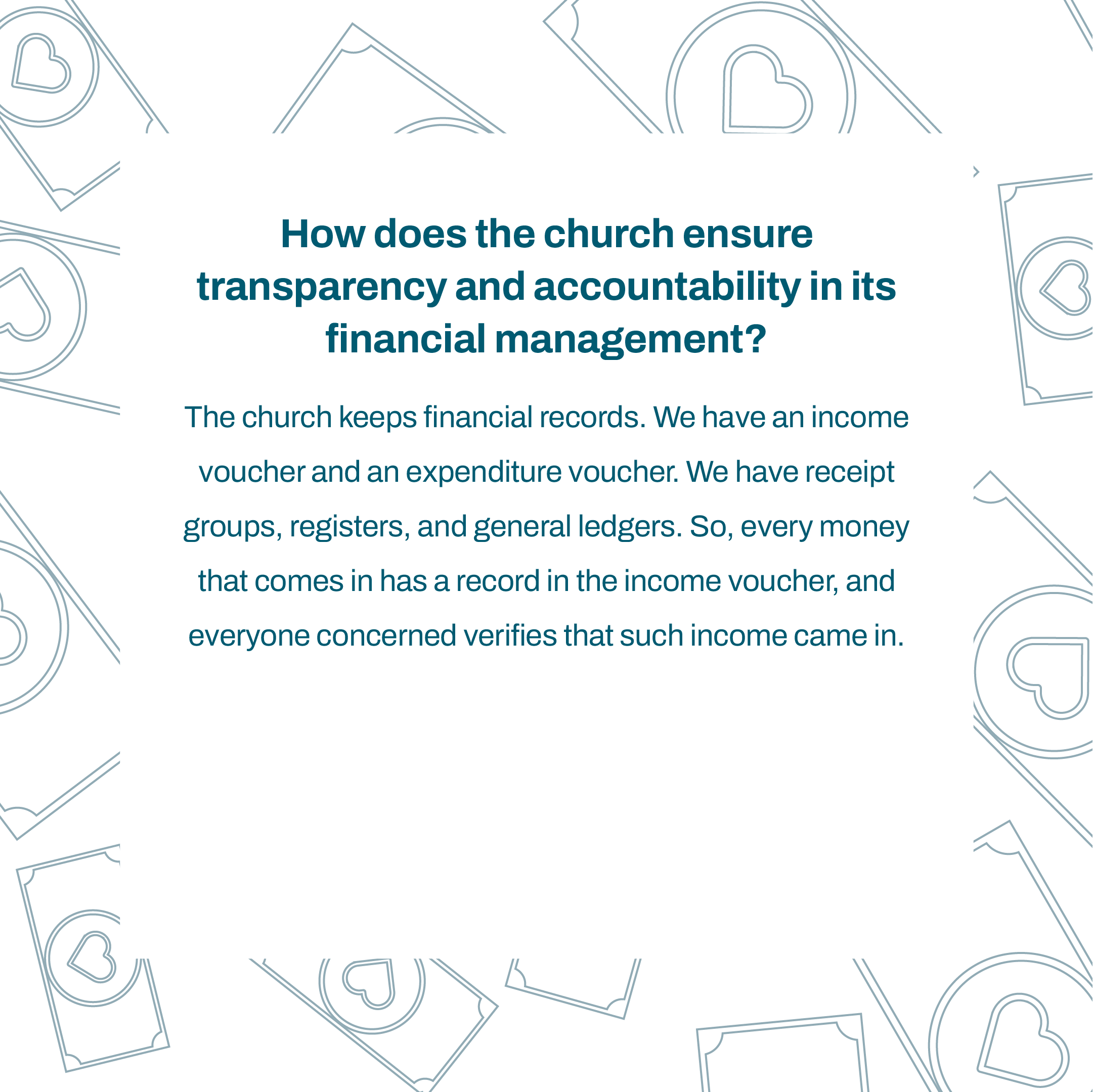
Are there any specific financial reports or audits conducted regularly? If so, how often are they done and by whom?
The church's account is always presented to the church committee on a monthly basis or when the church wishes. Questions are asked, and confusions are clarified.
Finally, how do you communicate financial information and updates to the church congregation after this process?
The church committee manages the affairs of the entire church, so the committee handles the church affairs on behalf of the whole congregation. The entire church elected them to do this as the whole church can’t gather for finance meetings. However, towards the end of every year or the beginning of a new year, the church committee announces to the church what was received in the physical year and how much was expended. This is always done in December or January so they can know how much they are taking into the new year. This helps us plan for early activities before more income flows in.




